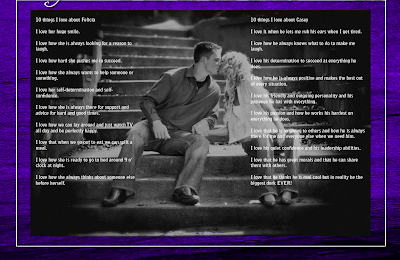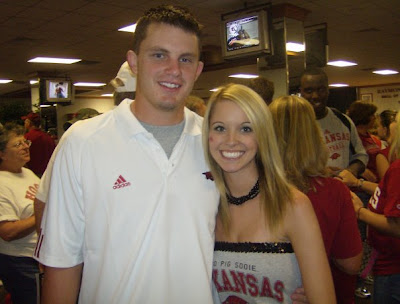RJ Esq
Prick Since 1974
Morning Coffee Feels Screwed
from Burnt Orange Nation by GhostofBigRoy
Gary Danielson needs to stop talking. It's going to be hard for someone who gets paid to talk, but it's in the best interests of everyone. He should probably also stop eating paint chips. That's on his family and loved ones to help him out there. Danielson, infamous among Longhorn fans for saying that the Longhorns run a "junk offense," was apparently sad that the Schlabach/Danielson Delusional Club lost a charter member in Mark Schlabach, and is now completing his transition from "Wow, that's ill-informed," to "Stark, raving lunatic."
The target this time are spread offenses, which don't pass the Danielson muster, particularly Michigan, struggling in a transition year without the players to run Dick Rod's version of the spread:
The author of the article, who now officially joins the Danielson Delusional Club, goes so far as it say that the spread may be dead before noting that there are still some success stories. No kidding? Brian Cook of MGoBlog (tip of the hat for the article link) looked at the 15 top offenses in the country, concluding that 12 of the 15 run some form of the spread. While teams like Purdue have had trouble staying ahead of opposing defenses, I would argue that their lack of success is more a problem of personnel--they haven't been able to recruit the overlooked talent from Texas after losing that pipeline when offensive coordinator Jim Cheney left.
With so many spread teams succeeding, it's ridiculous to use Michigan to claim that spread offenses are going the way of the wishbone. The cupboard was absolutely bare at Michigan after losing Chad Henne, Mike Hart, JJ Arrington and Mario Manningham. Besides, defenses still haven't been able to adjust enough to stop the spread, with all but the elite programs struggling to find enough fast players capable of tackling in space. When Mike Leach can no longer run the same five or so plays he's been using ever since he got to Texas Tech, then it will be time to declare the death of the spread. Danielson sounds old and out-of-touch with his repeated bashings of spread offenses after only watching SEC offenses and concluding that what he sees actually constitutes good offense trumped by better defense. And it all results in losing credibility by the second, the type of loss that suggests he's a few more comments from becoming another clown like Dave Lapham.
Selection committee insanity. ESPN's Brad Edwards sees a problem with the polls. I saw somewhere recently the suggestion that the BCS employ a selection committee similar to the one that college basketball uses, an idea which I like. Edwards accuses human voters of trying to serve as a selection committee, calling for more transparency by the pollsters, alleging that some dropped teams on ballots intentionally to help another, presumably referring to Texas moving ahead of Florida and Oklahoma.
The call for transparency is becoming more widespread, but it's nothing new that the pollsters are working as a selection committee. With human voters constituting two thirds of the final formula, voters became de facto selection committees with the creation of the BCS. The result is propaganda, like that coming from Texas partisans leading the "45-35" campaign, that will become more prevalent and may take nefarious forms, as I wrote last week, but also makes the season some ridiculous beauty pageant targeting people who may only see you play once or twice a year, with everyone trying to earn "style points." Add in the tangled web of coaching allegiances and their own inability to watch many games during the regular season and the whole thing looks worse by the second, a process started years ago. Oh yeah, and Harris poll voters who think that Penn State is still undefeated. What a mess.
Edwards is right to point out the possibilities for manipulation until transparency increases. That's only the first step, though, as the NCAA needs to seriously to consider creating a real selection committee without the biases that coaches possess and without the strange anonymity and unknown qualifications for Harris poll voters.
The two or three-team, one-division conundrum. Conference championship games are a boon to every conference that holds them. They generate money and attention, while ensuring that the final Pac 10 and Big 10 games occur in relative obscurity, sliding from the short attention span of voters. In cases like Alabama and Florida this season, they help settle the debate between two good teams from the same conference, help conclusively decide the champion.
The major issue, of course, is that divisional alignments within conferences mean that having two or three good teams in one divisions completely sends the system into disarray, particularly in the screwy Big 12, where head-to-head match ups don't count and a team gets left out that beat both of the teams in the championship game. The divisional alignment also relies on having consistently good teams evenly split between the two divisions, which clearly hasn't been the case in the Big 12 for years now.
Having two or three or four good teams in one division (like this year) makes the system dysfunctional, since it essentially can't handle more than one good team per divisions. That's why losing to OU is so costly--losing to OU means a slim chance of making the conference championship game, which might rematch OU/Texas were they in different divisions. One possibility is keeping schedules the same, but sending the two teams with the best conference records to the championship game. The other problem is the limit of two BCS bids per conference. Conferences that consistently underperform for multiple years in a row should lose their automatic bid if they aren't as good as a team from a conference that has three good teams stuck in one division.
Why I'm not confident as a Mizzou fan. Sam Bradford is going to absolutely shred the Missouri defense in Kansas City, even in the same weather conditions that Missouri lost in last week. You can bet that Kevin Wilson and his offensive coaches have noticed that sending receivers running up the sideline against Missouri's zone results in open receivers nearly every time. Bradford likely won't even need his lineman to hold repeatedly in an effort to give him more time.
Besides general ineptitude playing zone defense, Missouri also made some glaringly bad defensive decisions against Kansas. The first half brought consistent cornerback blitzes that failed to even bother the diminutive Reesing, while coming exclusively from the man who would otherwise be covering Dezmon Briscoe, one of the best receivers in the conference, leaving him open repeatedly. Followed later by zone blitzes dropping defensive tackle Ziggy Hood (listed at 6-4 and a generous 295 pounds) into coverage over the middle, including the final play of the game. Note to Missouri coaches: Dropping fat defensive tackles into coverage is not the solution to defending spread offenses. I'm not placing much confidence in Missouri staying competitive with Oklahoma because of their poor overall defense (92nd in total defense) and even worse pass defense (117th, worse than North Texas). Explain to me again why this team deserves to play for an automatic BCS bid more than Texas?

from Burnt Orange Nation by GhostofBigRoy
Gary Danielson needs to stop talking. It's going to be hard for someone who gets paid to talk, but it's in the best interests of everyone. He should probably also stop eating paint chips. That's on his family and loved ones to help him out there. Danielson, infamous among Longhorn fans for saying that the Longhorns run a "junk offense," was apparently sad that the Schlabach/Danielson Delusional Club lost a charter member in Mark Schlabach, and is now completing his transition from "Wow, that's ill-informed," to "Stark, raving lunatic."
The target this time are spread offenses, which don't pass the Danielson muster, particularly Michigan, struggling in a transition year without the players to run Dick Rod's version of the spread:
I said in September that Michigan would be the last major program that goes to the spread.I'm sure it's always going to be there for the MAC schools and schools like Kansas and Purdue. But at the top of the food chain, I don't see why you'd risk it. Michigan has really painted itself into a corner.
Danielson goes on to claim that the transition for Michigan could be "cataclysmic" and that it could take five or six years to recover. Or until Rodriguez actually gets the skill position talent to succeed, which could be much sooner than Danielson opines. Generously acknowledged is the fact that the spread offense needs the right personnel to succeed. But then, what offense doesn't need the right personnel?
The author of the article, who now officially joins the Danielson Delusional Club, goes so far as it say that the spread may be dead before noting that there are still some success stories. No kidding? Brian Cook of MGoBlog (tip of the hat for the article link) looked at the 15 top offenses in the country, concluding that 12 of the 15 run some form of the spread. While teams like Purdue have had trouble staying ahead of opposing defenses, I would argue that their lack of success is more a problem of personnel--they haven't been able to recruit the overlooked talent from Texas after losing that pipeline when offensive coordinator Jim Cheney left.
With so many spread teams succeeding, it's ridiculous to use Michigan to claim that spread offenses are going the way of the wishbone. The cupboard was absolutely bare at Michigan after losing Chad Henne, Mike Hart, JJ Arrington and Mario Manningham. Besides, defenses still haven't been able to adjust enough to stop the spread, with all but the elite programs struggling to find enough fast players capable of tackling in space. When Mike Leach can no longer run the same five or so plays he's been using ever since he got to Texas Tech, then it will be time to declare the death of the spread. Danielson sounds old and out-of-touch with his repeated bashings of spread offenses after only watching SEC offenses and concluding that what he sees actually constitutes good offense trumped by better defense. And it all results in losing credibility by the second, the type of loss that suggests he's a few more comments from becoming another clown like Dave Lapham.
Selection committee insanity. ESPN's Brad Edwards sees a problem with the polls. I saw somewhere recently the suggestion that the BCS employ a selection committee similar to the one that college basketball uses, an idea which I like. Edwards accuses human voters of trying to serve as a selection committee, calling for more transparency by the pollsters, alleging that some dropped teams on ballots intentionally to help another, presumably referring to Texas moving ahead of Florida and Oklahoma.
The call for transparency is becoming more widespread, but it's nothing new that the pollsters are working as a selection committee. With human voters constituting two thirds of the final formula, voters became de facto selection committees with the creation of the BCS. The result is propaganda, like that coming from Texas partisans leading the "45-35" campaign, that will become more prevalent and may take nefarious forms, as I wrote last week, but also makes the season some ridiculous beauty pageant targeting people who may only see you play once or twice a year, with everyone trying to earn "style points." Add in the tangled web of coaching allegiances and their own inability to watch many games during the regular season and the whole thing looks worse by the second, a process started years ago. Oh yeah, and Harris poll voters who think that Penn State is still undefeated. What a mess.
Edwards is right to point out the possibilities for manipulation until transparency increases. That's only the first step, though, as the NCAA needs to seriously to consider creating a real selection committee without the biases that coaches possess and without the strange anonymity and unknown qualifications for Harris poll voters.
The two or three-team, one-division conundrum. Conference championship games are a boon to every conference that holds them. They generate money and attention, while ensuring that the final Pac 10 and Big 10 games occur in relative obscurity, sliding from the short attention span of voters. In cases like Alabama and Florida this season, they help settle the debate between two good teams from the same conference, help conclusively decide the champion.
The major issue, of course, is that divisional alignments within conferences mean that having two or three good teams in one divisions completely sends the system into disarray, particularly in the screwy Big 12, where head-to-head match ups don't count and a team gets left out that beat both of the teams in the championship game. The divisional alignment also relies on having consistently good teams evenly split between the two divisions, which clearly hasn't been the case in the Big 12 for years now.
Having two or three or four good teams in one division (like this year) makes the system dysfunctional, since it essentially can't handle more than one good team per divisions. That's why losing to OU is so costly--losing to OU means a slim chance of making the conference championship game, which might rematch OU/Texas were they in different divisions. One possibility is keeping schedules the same, but sending the two teams with the best conference records to the championship game. The other problem is the limit of two BCS bids per conference. Conferences that consistently underperform for multiple years in a row should lose their automatic bid if they aren't as good as a team from a conference that has three good teams stuck in one division.
Why I'm not confident as a Mizzou fan. Sam Bradford is going to absolutely shred the Missouri defense in Kansas City, even in the same weather conditions that Missouri lost in last week. You can bet that Kevin Wilson and his offensive coaches have noticed that sending receivers running up the sideline against Missouri's zone results in open receivers nearly every time. Bradford likely won't even need his lineman to hold repeatedly in an effort to give him more time.
Besides general ineptitude playing zone defense, Missouri also made some glaringly bad defensive decisions against Kansas. The first half brought consistent cornerback blitzes that failed to even bother the diminutive Reesing, while coming exclusively from the man who would otherwise be covering Dezmon Briscoe, one of the best receivers in the conference, leaving him open repeatedly. Followed later by zone blitzes dropping defensive tackle Ziggy Hood (listed at 6-4 and a generous 295 pounds) into coverage over the middle, including the final play of the game. Note to Missouri coaches: Dropping fat defensive tackles into coverage is not the solution to defending spread offenses. I'm not placing much confidence in Missouri staying competitive with Oklahoma because of their poor overall defense (92nd in total defense) and even worse pass defense (117th, worse than North Texas). Explain to me again why this team deserves to play for an automatic BCS bid more than Texas?















































































































